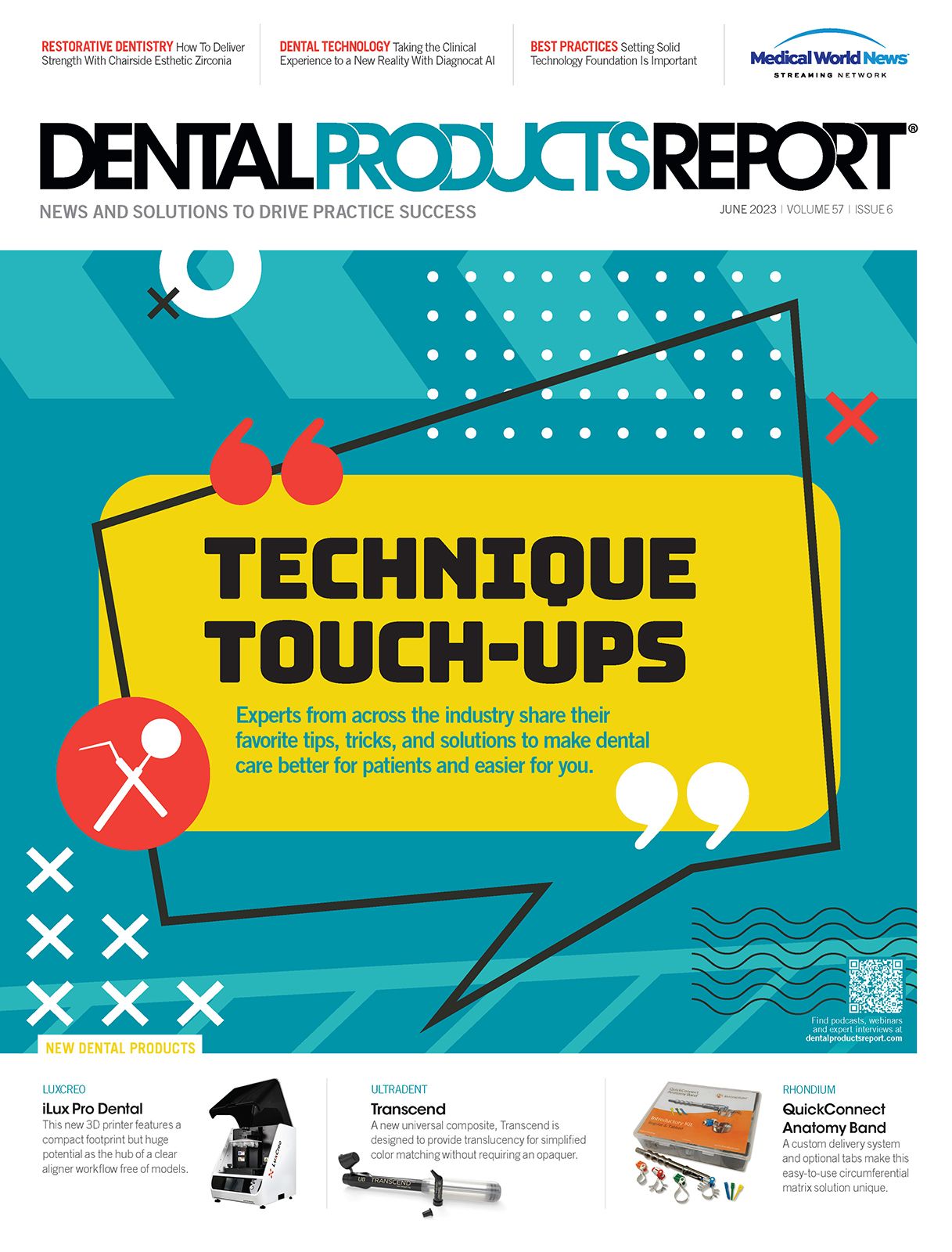What I Wish I Knew Before I Became a Dentist
Chief Dental & Technology Editor John Flucke, DDS, shares what he has learned and why he is so passionate about this profession.
What I Wish I Knew Before I Became a Dentist. Image: © PureSolution - stock.adobe.com

In this issue, we at Dental ProductReport® have decided to devote ourselves to helping readers understand the “what I wish I knew before becoming a dentist.” This is a great idea because many things fall into that category. It does not matter how long you have been in practice; there are always things to learn. Some might seem basic, but if you happen to be unaware of them, then they are not so basic, are they?
I know an oral surgeon who has a great way of explaining the odds of complications. When he discusses the potential for complications with patients, he tells them, “I could quote you all kinds of statistics, but it does not matter what those percentages are if it happens to you. If it should happen to you, the odds are 100%.”
That same philosophy applies to knowledge. If you do not know a “common” fact, then that fact is not so common.
For this column, I thought about making a list of the things I wish I knew before I became a dentist. Then it occurred to me that if I wrote down the things I did know, the list would be much shorter.
All kidding aside, certain things are important to know no matter where you are in your career. What I have decided to do for this issue is to answer some of the questions many doctors have asked me during my career. However, instead of doing a Q&A, I have decided to break things down into concepts and expand upon them. Hopefully, there will be some information here that you can apply to your situation, no matter how long you have been practicing.
Take Your Time
I will begin with a bit of advice about bringing in or upgrading technology. I love the old expression, “You do not eat an elephant in 1 bite. You eat an elephant 1 bite at a time.” This means start slow and steady when bringing a new piece of technology into your workflow.
Everything takes time to learn, so learning the basics of a system is where you want to start. Anytime I bring a new technique into my workflow, I always work “on the bench” before I “go live” with patients. I want to make sure I have things figured out before I incorporate it into my normal routine. Whether it is a new endodontic file or anything else, it pays to have some experience with it.
That applies just as well to your team. Getting them proper training and/or experience with something really helps when the moment comes to be in front of patients. Human beings are creatures of habit and we also do not want to look foolish or unsure of ourselves. If someone starts to struggle in front of a patient, the first inclination is to go back to the “old way” because that is where the comfort is. By giving them a comfort level with something new, you help ensure their success.
The other part of this equation is to bring in new things gradually. Trying to change more than 1 workflow or process at a time is confusing. Keeping things simple pays off.
“Buy-in” Is Important
For a journey to be accomplished, it is important for everyone to know what the destination is and how they are going to get there. Unless you agree on where you are heading, you will never reach your destination. That means you need agreement, cohesion, and teamwork.
I have been told numerous times of situations where a doctor decided to initiate a change in the office and chose not to include the staff in the decision. I have heard many versions of this story, but never one that turned out well. The decisions the doctor makes almost universally affect the team. If the team does not have some type of input, implementation is going to be dicey at best.
The best way to handle it is:
The doctor wants to make a change. There is a staff meeting involving the team members this change will affect. The change is discussed in a civil, conversational manner. Potential problems are discussed and solved.
The point is that the staff leaves the meeting with a positive feeling about the change. They feel included and respected because they are part of the decision-making. That means that when there are snags (and there almost always will be), the team will work through them diligently and with few complaints. That is simply because it was “their idea” too.
The concept of “we’re all in this together” goes a long way in fostering success.
Communication Is Key
I absolutely love tried and true verbal expressions. I use them all the time. One of my favorites is, “People don’t care how much you know; they want to know how much you care.” That expression is incredibly true and there may be no area where it applies better than health care.
As I have said here before (many times), one of my first technology purchases was an intraoral camera. The camera allowed me to show patients the inside of their mouths, which then allowed me to explain what needed attention. The first patients examined using the camera were in awe of what I could show them. The part that amazed me was that most of them were more impressed with the technology than with seeing their mouth.
By today’s standards, the system was primitive, but what it provided was nothing short of groundbreaking. It allowed me to show the patient the problem and, most importantly, allowed them to understand the problem. Once that happened, almost everyone wanted to know the best solution and how quickly the problem could be rectified. The result was amazing. The big lesson was that patients appreciate communication, and communication helps build success.
Once I learned that lesson, I devoted a lot of my time and resources to communication. The high-tech environment we all work in today has many benefits and helps us provide better care for patients. However, one of the secondary benefits to things like digital radiography, artificial intelligence, and even digital impressions is the communication it provides with patients. Being able to text and email patients is a tremendous benefit of communication, but when patients can see things in the office with their own eyes, they understand.
The other upside of communication is when your patients have exposure to the high-tech tools in your office, and then communicate their experiences to friends. It is amazing to me how technology markets itself.
Our office does not do much external marketing. However, we do invest in the best high-tech tools available. By doing that, patients come into the office and, when they experience the technology, they often tell coworkers, family, and friends about that experience. Word of mouth from friends and loved ones is the best form of marketing available.
Love What You Do
That heading probably seems silly to some of you, but it is so true. I tell my high school patients figuring out their futures that it does not matter what they do, as long as they love it. Another old expression I believe in is, “Love what you do, and you will never work.”
Without telling the entire story here, I wanted to become a dentist when I was 3. Here I am, all these years later. The profession has allowed me to develop relationships with thousands of individuals. I get to help others, change lives, and determine my own destiny.
Do not get me wrong—there are some days when I probably would prefer to own a bait shop, but those days are rare. We have a fair number of young adults come to our office to shadow doctors and hygienists. I encourage anyone with an interest to explore the profession and, if they feel it is the right choice for them, to go for it.
By loving what you do, you help your patients to relax and to have less stressful visits. There is no greater compliment I can receive than to have a patient say, “You really seem to love what you do.” I always tell them, I do—and part of that is helping individuals like themselves.
Wrapping Up
As I look back on what I have written here, I noticed that I did not really mention much about the clinical side of things. I tend to feel that the intangibles drive the tangibles. For me, the patients are the most important part. Once they are comfortable and understand the need for treatment, then we can focus on the hands-on part of the profession.
Maybe I will do a column some day on the technique side of things I wished I had known much earlier. Of course, the way our profession changes on a regular basis, that column might be outdated by the time we get it into print.
In addition to treating patients, I also love writing and I love communicating with all of you in every issue. Thanks for reading and thanks for being a part of dentistry. What you do changes patients for the better, and that changes the world for the better.
